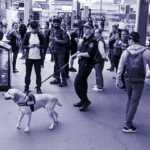Should the Names of Defendants be Published Before Guilt is Decided?

Being publicly named and shamed can be one of the worst things about being accused of a crime. Even if your innocence becomes clear and the charges are dropped, the damage may already have been done – and your career or reputation may never recover.
This is especially true if the allegations are particularly abhorrent, which are often the types of cases that make the headlines.
Despite the devastating consequences of being publicly identified, there is little protection in NSW for those charged with crimes.
What does NSW law say?
All parts of Australia have legislation prohibiting the names of juvenile defendants from being published, except the Northern Territory, although there are exceptions there too.
But when it comes to adult defendants, there are very few protections in NSW. One exception is defamation – specifically, where a publication says or implies that a person is guilty of a crime when they are not; which is why news outlets often use words like ‘alleged’ or ‘reportedly’ while maintaining an accusatory tone.
The names of complainants in sexual assault cases, and the names of child witnesses, are suppressed under section 578A of the Crimes Act 1990; which makes it a crime to publish the details of such persons.
In addition, section 45(1) of the Crimes (Domestic and Personal Violence) Act prohibits children involved in AVO proceedings from being identified until cases are finalised. This encompasses the child’s name and any other identifiers; including the defendant’s name if it would tend to identify the child.
Open Justice versus Personal Protections
The reason behind publishing the names of defendants is to enhance the transparency of the criminal justice system. The ideal of ‘open justice’ also dictates that courts are generally open to the public, and the names of magistrates, judges, criminal defence lawyers and prosecutors can also be published; whether they like it or not.
But the stress and trauma of publishing a defendant’s details can be especially devastating; and it has been argued that those accused of offences should not have their details published until and unless they are found guilty. After all, why should innocent people suffer for crimes they did not commit.
Case studies
A Toronto man who was found not guilty of sexual assault was nevertheless severely discriminated against in his personal and social life, employment, and even when trying to purchase a picture. The seller of the artwork had Googled the man’s name and, on the basis of media reports, declined to sell him the picture. The man’s name will always be linked to the heinous allegations on a range of media and databases – which he discovered when police looked up his name on the police database after pulling him over.
Closer to home, a 57-year-old father from Queensland found himself under investigation after Ashleigh Humphrys, a drunk 20 year old girl, was hit while lying or crawling across a road. Ms Humphrys was tragically struck by a dark-colour sedan, perhaps without the driver even realising they had hit a person.
But this didn’t stop the media from labelling the driver a ‘coward’ and police declaring that fleeing the scene was a ‘disgraceful act’.
Although the man was released without charge after a police interview, the damage had been done – he had already been subjected to a tirade of abuse on television, radio, newspapers and social media. The ordeal proved too much and he took his own life just days later.
The UK
In the UK, those facing unproven rape charges were granted anonymity under the 1976 Sexual Offence Act, but that protection was removed in 1988. Recently, there have been calls for defendants, especially those facing sexual assault charges, to have the protection restored in order to prevent the situation where innocent people have their names dragged through the mud.
Those calls have met fierce opposition from UK victims groups, who argue that hiding the names is a potential barrier to other victims of the same person coming forward.
Other parts of Australia
In Queensland, section 10 of the Crimes (Sexual Offences) Act 1978 protects those charged with a sexual offence from having their details published until they are committed for trial or sentence; in other words, until their cases get past the local court stage and are referred to a higher court for trial, or they are found guilty. It is an offence, punishable by a fine of up to $11,780 or two years imprisonment, for anyone to publish their name, address, school, place of employment or other information that could lead to their identification.
Some Queensland newspapers have chosen to take it one step further – not publishing the names of defendants until and unless they are proven guilty.
In 2003, one businessman from Toowoomba faced allegations of a rape that allegedly occurred 17 years earlier. The Chronicle, which was the only local newspaper, chose not to publish the man’s name – and it generally only publishes details of defendants who are found to be guilty.
The man was found ‘not guilty’ after a jury trial, and his name was never published. He is grateful, saying that revealing his name would have ruined him and his family, despite the fact that he is innocent.
Northern Territory legislation similarly offers limited protections to defendants against premature publication of their identity in sexual assault trials, as does South Australia.
However, the protection does not extend to those charged with crimes that are not sexual offences.






